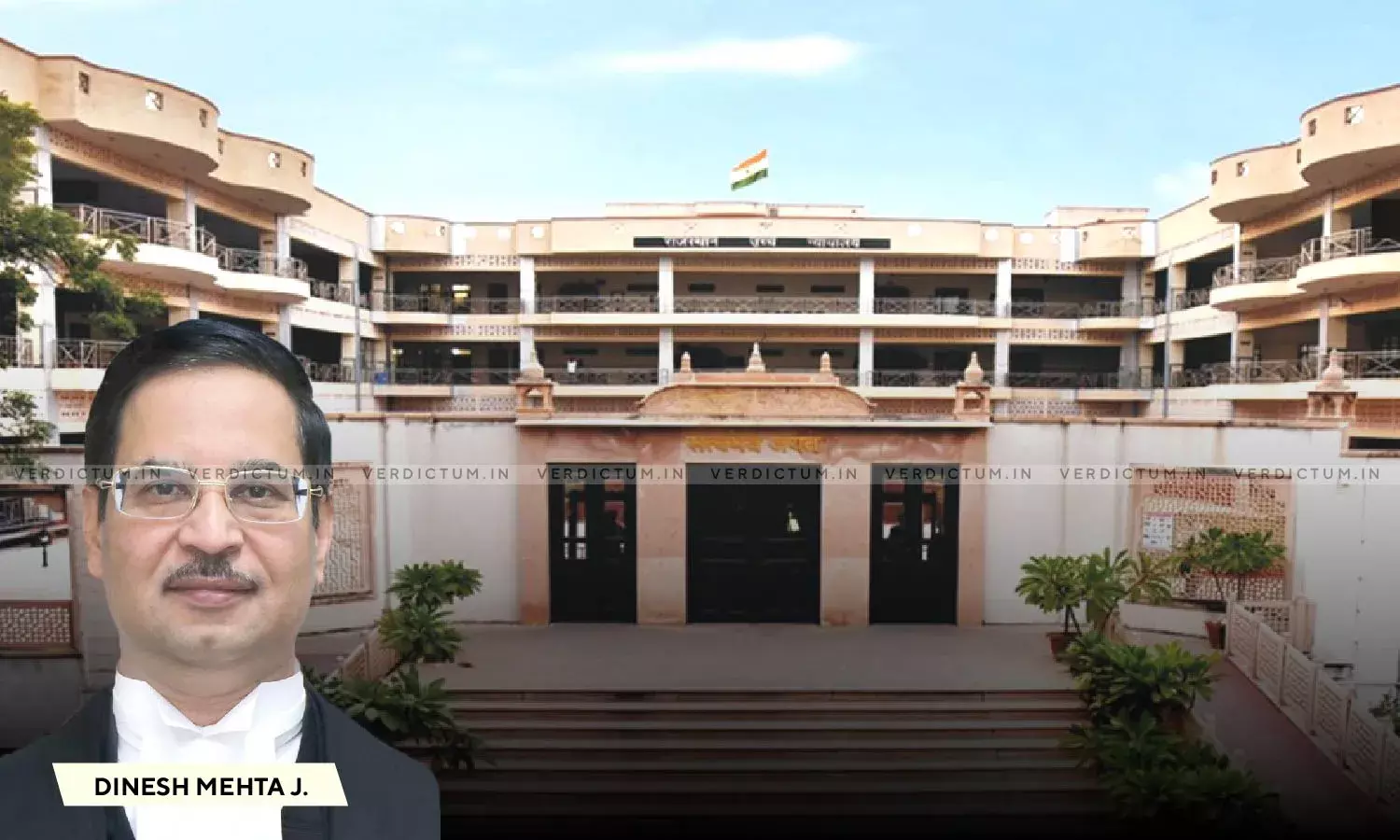Depriving A Woman Of Public Employment On Ground Of Being Unmarried Violates Articles 14 & 16: Rajasthan High Court
The Rajasthan High Court, Jodhpur Bench has held that depriving a woman of public employment on the ground of her being unmarried violates Articles 14 and 16 of the Constitution.
The Court was dealing with a writ petition filed by a 22-year-old woman who was aggrieved with a condition in a circular issued by the State Government which dealt with selection, appointment and dispensing with the engagement of Aanganwari Karyakarta, Mini Karyakarta and Helper.
A Single Bench of Justice Dinesh Mehta observed, “The State can neither pre-empt any such situations nor can it prevent a woman from claiming job simply because she has not tied the nuptial knot. … In the opinion of this Court, depriving a women of public employment on the ground of her being unmarried, apart from being violative of fundamental rights guaranteed to a woman under Articles 14 and 16 of the Constitution of India impinges upon a woman’s dignity.”
The Bench said that marital status or the condition of a woman to be married to work in Aanganwadi hardly fulfills any object.
Advocate Yash Pal Khileree appeared on behalf of the petitioner while AAG Anil Gaur appeared on behalf of the respondents.
In this case, the petitioner had obtained a graduate’s degree in Arts and a Computer Proficiency Certificate (RS-CIT), but was yet to marry. The respondents issued an advertisement inviting eligible candidates to apply for the posts of Aanganwadi Karyakarta/Mini Aanganwadi Karyakarta/Aanganbadi Sahayika and Asha Sahyogini. The petitioner desirous of working on the post of Aanganwadi Karyakarta for Aanganwadi Center Gugdi (in Tehsil Balotra) approached the Child Development Project Officer, Women And Child Development Department for submitting an application form.
As pleaded by the petitioner, the aforesaid Officer verbally told her that as she was unmarried, she was not eligible to apply for the post of Aanganwadi Karyakarta in the face of one of the conditions of the advertisement. And, when the officer refused to accept her application form, she sent the same by way of speed post. Immediately thereafter, the petitioner moved the High Court by way of filing the writ petition.
The High Court in view of the above facts noted, “According to this Court the discrimination which is meted out to the unmarried women on account of the offending condition cannot be countenanced. The same is ex-facie illegal, arbitrary and against the very scheme of the Constitution of India, which guarantees equality. … This Court is constrained to observe that an entirely new front of discrimination, which was not even envisaged or thought of by the framers of the Constitution has now been opened by the respondents by including the contentious condition in the Circular.”
The short, yet, question of seminal importance before the Court was as to whether a candidate can be discriminated or denied public employment on the ground of his/her marital status.
“Mere fact that a candidate is unmarried cannot be a reason to disqualify her. … A host of questions can be posed to the policy makers of the State - What if, the candidate marries to a boy of the same village or vicinity? What if, a married woman after being engaged as Anganwadi Karykarta moves to other place? What if, a woman’s husband decides to live in woman’s parental home? What if, a woman gets widowed or divorced and decides to move to a new place? and What if, a woman does not wish to marry at all!”, said the Court.
The Court further observed that the apprehension that after marriage, a woman will move on to her matrimonial house is baseless and it cannot be a reason to justify or protect the offending condition.
“The condition of a woman to be married being absolutely unconscionable and violative of women’s right to apply and get public employment is liable to be declared arbitrary and unconstitutional”, held the Court.
Accordingly, the High Court allowed the petition and quashed the impugned condition of the circular.
Cause Title- Madhu v. State of Rajasthan & Ors. (Neutral Citation: 2023:RJ-JD:27906)




